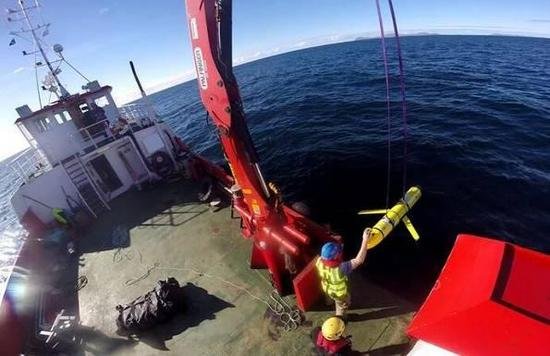As I've already pointed out, none that you've listed and highlighted include the right for "scientific research". Read Article 246 in regards to marine research.
As for the location, Chinese claim is that of historic title, which goes far beyond the rights of EEZ.
Article87
Freedom of the high seas
1. The high seas are open to all States, whether coastal or land-locked. Freedom of the high seas is exercised under the conditions laid down by this Convention and by other rules of international law. It comprises,
inter alia, both for coastal and land-locked States:
(a) freedom of navigation;
(b) freedom of overflight;
(c) freedom to lay submarine cables and pipelines, subject to Part VI;
(d) freedom to construct artificial islands and other installations permitted under international law, subject to Part VI;
(e) freedom of fishing, subject to the conditions laid down in section 2;
(f)
freedom of scientific research, subject to Parts VI and XIII.
Part XIII
Article 238 Right to conduct marine scientific research
All States, irrespective of their geographical location, and competent international organizations have the right to conduct marine scientific research subject to the rights and duties of other States as provided for in this Convention.
NOW, as for 246:
50 nautical miles northwest of Subic Bay off the Philippinesis not Chinese EEZ
Article 246
Marine scientific research in the exclusive economic zone
and on the continental shelf
1.
Coastal States, in the exercise of their jurisdiction, have the right to regulate, authorize and conduct marine scientific research in their exclusive economic zone and on their continental shelf in accordance with the relevant provisions of this Convention.
2.
Marine scientific research in the exclusive economic zone and on the continental shelf shall be conducted with the consent of the coastal State.
3.
Coastal States shall, in normal circumstances, grant their consent for marine scientific research projects by other States or competent international organizations in their exclusive economic zone or on their continental shelf to be carried out in accordance with this Convention exclusively for peaceful purposes and in order to increase scientific knowledge of the marine environment for the benefit of all mankind. To this end, coastal States shall establish rules and procedures ensuring that such consent will not be delayed or denied unreasonably.
4. For the purposes of applying paragraph 3, normal circumstances may exist in spite of the absence of diplomatic relations between the coastal State and the researching State.
5.
Coastal States may however in their discretion withhold their consent to the conduct of a marine scientific research project of another State or competent international organization in the exclusive economic zone or on the continental shelf of the coastal State
if that project:
(a) is of direct significance for the exploration and exploitation of natural resources, whether living or non-living;
(b) involves drilling into the continental shelf, the use of explosives or the introduction of harmful substances into the marine environment;
(c) involves the construction, operation or use of artificial islands, installations and structures referred to in articles 60 and 80;
(d) contains information communicated pursuant to article 248 regarding the nature and objectives of the project which is inaccurate or if the researching State or competent international organization has outstanding obligations to the coastal State from a prior research project.
6. Notwithstanding the provisions of paragraph 5, coastal States may not exercise their discretion to withhold consent under subparagraph (a) of that paragraph in respect of marine scientific research projects to be undertaken in accordance with the provisions of this Part on the continental shelf, beyond 200 nautical miles from the baselines from which the breadth of the territorial sea is measured, outside those specific areas which coastal States may at any time publicly designate as areas in which exploitation or detailed exploratory operations focused on those areas are occurring or will occur within a reasonable period of time. Coastal States shall give reasonable notice of the designation of such areas, as well as any modifications thereto, but shall not be obliged to give details of the operations therein.
7. The provisions of paragraph 6 are without prejudice to the rights of coastal States over the continental shelf as established in article 77.
8. Marine scientific research activities referred to in this article shall not unjustifiably interfere with activities undertaken by coastal States in the exercise of their sovereign rights and jurisdiction provided for in this Convention.
NOWHERE DOES THIS STATE THERE IS A RIGHT TO TAKE EQUIPMENT.
Wrong. It doesn't have to be recognized as Chinese EEZ, but rather anyone's EEZ for it to be outside the definition of what is High Sea.
Let's views this as being Philippine EEZ, what rights does that give a Chinese naval ships to operating in Philippine EEZ and to confiscate (steal) equipment, if the Philippines have given consent?









